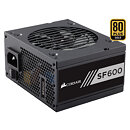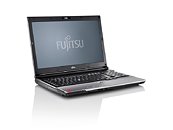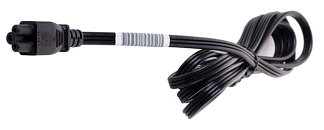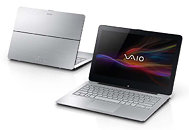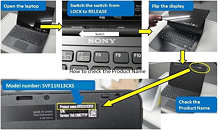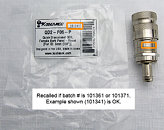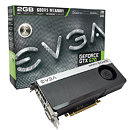Apr 10th, 2025 05:54 EDT
change timezone
Latest GPU Drivers
New Forum Posts
- Looking for input on fan placement for my Define R5 (3)
- How is the Gainward Phoenix Model in terms of quality? (1)
- Will you buy a RTX 5090? (478)
- Downgrading bios on asrock A320 board (1)
- Star Citizen (2515)
- ## [Golden Sample] RTX 5080 – 3300 MHz @ 1.020 V (Stock Curve) – Ultra-Stable & Efficient (45)
- RX 9000 series GPU Owners Club (276)
- random system shutdown with fans running at full speed (17)
- Shadow of the Tomb Raider benchmark (555)
- Do you use Linux? (573)
Popular Reviews
- The Last Of Us Part 2 Performance Benchmark Review - 30 GPUs Compared
- ASRock Z890 Taichi OCF Review
- MCHOSE L7 Pro Review
- Sapphire Radeon RX 9070 XT Pulse Review
- PowerColor Radeon RX 9070 Hellhound Review
- Upcoming Hardware Launches 2025 (Updated Apr 2025)
- Sapphire Radeon RX 9070 XT Nitro+ Review - Beating NVIDIA
- Acer Predator GM9000 2 TB Review
- ASUS GeForce RTX 5080 Astral OC Review
- UPERFECT UStation Delta Max Review - Two Screens In One
Controversial News Posts
- NVIDIA GeForce RTX 5060 Ti 16 GB SKU Likely Launching at $499, According to Supply Chain Leak (174)
- MSI Doesn't Plan Radeon RX 9000 Series GPUs, Skips AMD RDNA 4 Generation Entirely (146)
- Microsoft Introduces Copilot for Gaming (124)
- AMD Radeon RX 9070 XT Reportedly Outperforms RTX 5080 Through Undervolting (119)
- NVIDIA Reportedly Prepares GeForce RTX 5060 and RTX 5060 Ti Unveil Tomorrow (115)
- Nintendo Confirms That Switch 2 Joy-Cons Will Not Utilize Hall Effect Stick Technology (100)
- Over 200,000 Sold Radeon RX 9070 and RX 9070 XT GPUs? AMD Says No Number was Given (100)
- Nintendo Switch 2 Launches June 5 at $449.99 with New Hardware and Games (99)
News Posts matching #Recall
Return to Keyword Browsing
Microsoft Copilot+ Becomes More Useful on AMD and Intel PCs
When Microsoft first introduced the Copilot+ program alongside its renewed push for Windows-on-Arm laptops, the AI-powered assistant features were mostly limited to Snapdragon X-powered devices. In addition to the inclusion of these features on Intel and AMD systems, Microsoft is also announcing Voice Access, a new accessibility feature that will first launch on Qualcomm Snapdragon systems and make their way to Intel- and AMD-powered systems. These new updates come by way of the March 27 Preview update titled KB505365. However, there is still no mention of an AMD and Intel launch for the much maligned Recall feature that Microsoft was testing late last year and recalled due to privacy concerns.
According to the latest Windows Experience Blog post, users of AMD- and Intel-powered PCs will now be able to access features, like Live Captions, Cocreator, Restyle Image, and Image Creator more broadly across the line-up of Copilot+ PCs with Intel Core Ultra 200V and AMD Ryzen AI 300 CPUs. Live Captions is officially pitched as an accessibility feature, meanwhile Restyle Image and Image Creator are AI-powered image editing and generation features, and Cocreator lies somewhere in between as a text-to-image tool that is meant to augment drawing in Paint. Cocreator will be rolling out as of the announcement, and Restyle Image and Image Creator will be available in the Photos app on Intel and AMD systems. As for Voice Access, Microsoft claims that it will allow users to be more flexible with their language when using speech to navigate their PCs, as opposed to "learning complex steps, commands and syntax that voice access previously required" for voice navigation on PC. Voice Access will initially be limited to Snapdragon X PCs, but it will roll out to AMD and Intel Copilot+ PCs later this year.
According to the latest Windows Experience Blog post, users of AMD- and Intel-powered PCs will now be able to access features, like Live Captions, Cocreator, Restyle Image, and Image Creator more broadly across the line-up of Copilot+ PCs with Intel Core Ultra 200V and AMD Ryzen AI 300 CPUs. Live Captions is officially pitched as an accessibility feature, meanwhile Restyle Image and Image Creator are AI-powered image editing and generation features, and Cocreator lies somewhere in between as a text-to-image tool that is meant to augment drawing in Paint. Cocreator will be rolling out as of the announcement, and Restyle Image and Image Creator will be available in the Photos app on Intel and AMD systems. As for Voice Access, Microsoft claims that it will allow users to be more flexible with their language when using speech to navigate their PCs, as opposed to "learning complex steps, commands and syntax that voice access previously required" for voice navigation on PC. Voice Access will initially be limited to Snapdragon X PCs, but it will roll out to AMD and Intel Copilot+ PCs later this year.

Microsoft Commits to Greater Transparency with Windows 11 Features Roadmap
If you ever wondered when a Windows 11 feature you are looking for is coming, there is now a way to check that out, as Microsoft is now committed to being more transparent with its upcoming features. In the latest Windows IT Pro blog, the statement reads: "At Microsoft, we've had the privilege to talk to thousands of IT professionals just like you, across the globe, about your experience managing Windows. Across those conversations, one thing rings loud and clear: the need for more transparency around what's shipping and when so that you can manage change for your estate." Interestingly, the roadmap will display features currently available for validation in the Windows Insider Program, those gradually rolling out to broader users, and those that will become generally available as part of a future monthly non-security update.
However, Microsoft is using the roadmap for feature cancellations, too. "The Windows roadmap provides estimated release dates and descriptions for features being released. All information is subject to change. As a feature or product is canceled or postponed, information will be removed from this website." This roadmap is tailored for Microsoft's Windows 11 client builds, not the Windows Server users. Large organizations have to manage many PC clients, so knowing when a new feature drops can lead to a better-planned OS update path for minimal downtime and productivity loss. Plus, PC enthusiasts running the latest Windows build can now know when to expect a feature they look forward to, like Recall and Click to Do.
However, Microsoft is using the roadmap for feature cancellations, too. "The Windows roadmap provides estimated release dates and descriptions for features being released. All information is subject to change. As a feature or product is canceled or postponed, information will be removed from this website." This roadmap is tailored for Microsoft's Windows 11 client builds, not the Windows Server users. Large organizations have to manage many PC clients, so knowing when a new feature drops can lead to a better-planned OS update path for minimal downtime and productivity loss. Plus, PC enthusiasts running the latest Windows build can now know when to expect a feature they look forward to, like Recall and Click to Do.

Microsoft Plans "Windows Intelligence" Rebrand for AI Features
Suppose you were following the announcement of the newest Windows 11 features like Recall and Copilot. In that case, you questioned Microsoft's approach to these new features regarding security, real-world usage, and, least likely, naming scheme. If the latter is the case, you are in for a treat. According to the latest round of reports, Microsoft is reportedly preparing to converge its AI features under a new brand name—Windows Intelligence. This move comes as the tech giant expands its AI integration across the Windows platform to give customers more reassurance in its AI features. However, the company has yet to confirm the official rebranding initiative. Recent discoveries by tech enthusiasts have fueled speculation about this upcoming change. In October, researcher Tero Alhonen uncovered options for AI-enabled applications, while X user Albacore recently spotted a placeholder settings page for Windows Intelligence in a Windows 24H2 build.
"Windows Intelligence" isn't entirely new to Microsoft's ecosystem, as it was previously used in security-related updates. However, this broader application signals a shift from its earlier security-focused context and appears to replace the "Windows AI" designation spotted in Group Policy earlier this year. The rebranding seems to follow a trend set by Apple, which has branded its AI features as "Apple Intelligence." However, Microsoft's approach with "Windows Intelligence" suggests a focus on creating a unified hub for AI features within its operating system rather than just a clever play on the "AI" acronym. While controversial features like Recall and the recently redesigned Copilot are expected to retain their current branding, Windows Intelligence could serve as an overarching framework for managing AI permissions and data usage across the platform.
"Windows Intelligence" isn't entirely new to Microsoft's ecosystem, as it was previously used in security-related updates. However, this broader application signals a shift from its earlier security-focused context and appears to replace the "Windows AI" designation spotted in Group Policy earlier this year. The rebranding seems to follow a trend set by Apple, which has branded its AI features as "Apple Intelligence." However, Microsoft's approach with "Windows Intelligence" suggests a focus on creating a unified hub for AI features within its operating system rather than just a clever play on the "AI" acronym. While controversial features like Recall and the recently redesigned Copilot are expected to retain their current branding, Windows Intelligence could serve as an overarching framework for managing AI permissions and data usage across the platform.

Windows 11 Gains 3% in OS Market Share, Windows 10 Remains on Top
The battles of operating systems continue, and one fight is internal to the Microsoft Windows user base. Recent data from StatCounter shows that Windows 11 now accounts for 35.58% of Windows installations as of October 2024, recording a modest 3% increase. Meanwhile, Windows 10 continues to power most Windows computers, with a 61% market share. The gradual shift toward Windows 11 comes as Microsoft pushes software updates and hardware partnerships. Large organizations have begun adopting the newer OS, drawn to its updated security features. These include mandatory secure boot protocols and improved protection against credential theft, addressing growing cybersecurity concerns. For individual users, Windows 11 offers updated gaming capabilities through DirectStorage and a redesigned interface. However, many still prefer Windows 10's established stability and broader compatibility with existing hardware and software. Microsoft's recent announcement of a $30 yearly Extended Security Updates subscription acknowledges this divide.
Starting in October 2025, when Windows 10's standard support ends, users can purchase these updates to maintain security protections. Unlike previous programs restricted to business customers, this subscription will be available to all users. The move to Windows 11 faces a significant hurdle: strict system requirements that exclude many older computers. While these standards aim to ensure better performance and security, they effectively prevent many current Windows 10 users from upgrading. Microsoft's plan to add new AI features like Recall and Copilot to Windows 11 could attract more users. Still, the transition largely depends on hardware replacement cycles and users' willingness to adapt to a new system. As Microsoft manages both operating systems, its strategy reflects the challenge of maintaining existing Windows 10 installations while encouraging gradual migration to Windows 11.
Starting in October 2025, when Windows 10's standard support ends, users can purchase these updates to maintain security protections. Unlike previous programs restricted to business customers, this subscription will be available to all users. The move to Windows 11 faces a significant hurdle: strict system requirements that exclude many older computers. While these standards aim to ensure better performance and security, they effectively prevent many current Windows 10 users from upgrading. Microsoft's plan to add new AI features like Recall and Copilot to Windows 11 could attract more users. Still, the transition largely depends on hardware replacement cycles and users' willingness to adapt to a new system. As Microsoft manages both operating systems, its strategy reflects the challenge of maintaining existing Windows 10 installations while encouraging gradual migration to Windows 11.

Microsoft Windows 11 2024 Update Begins Rolling Out
Microsoft today released the Windows 11 2024 Update to the general user-base. This version of the operating system was being referred to as the Windows 11 "24H2 Update." Since Microsoft moved away from the biannual major release cycle for Windows, 24H2 was set up to be called simply the "2024 Update." Windows 11 2024 Update introduces several new experiences that leverage native AI acceleration on Copilot+ PCs—cool new things like super-resolution for Photos, or generative fill and erase tools in Paint. The update also releases Preview versions of Click to Do, and Windows Recall.
Click to Do is a generative AI-based utility that lets you perform text related actions anywhere (think rephrasing or summarizing something); or perform visual search for an item in a video or photo, using Bing. Windows Recall is a star-attraction, it lets you trace-back steps or actions in any compatible software, by relying on visual snapshots of your work to restore past actions. This should prove particularly useful for creative work. Both Click to Do, and Windows Recall require a Copilot+ PC (a machine with an NPU that has at least 40 AI TOPS of performance on offer). Windows 2024 Update should begin appearing in the Update section of Windows Settings.
Click to Do is a generative AI-based utility that lets you perform text related actions anywhere (think rephrasing or summarizing something); or perform visual search for an item in a video or photo, using Bing. Windows Recall is a star-attraction, it lets you trace-back steps or actions in any compatible software, by relying on visual snapshots of your work to restore past actions. This should prove particularly useful for creative work. Both Click to Do, and Windows Recall require a Copilot+ PC (a machine with an NPU that has at least 40 AI TOPS of performance on offer). Windows 2024 Update should begin appearing in the Update section of Windows Settings.

Microsoft Revamps Recall for Copilot+ PCs With a Focus on Security Concerns
Today Microsoft published an extensive blog post about the controversial Recall feature that was intended to launch with Copilot+ enabled Windows 11 PCs. To recap on Recall: Recall was announced as a service that creates and stores 'snapshots' of the user's activity on their PC, and uses the neural processing hardware within a Copilot+ certified machine to filter search requests by the user in order to find what they had previously seen. In effect, it took constant screenshots and would index the contents of those screenshots to assist with vague search queries. Saw a very funny picture in Discord a week ago and can't find it but can describe what it looked like? Search Recall and with the power of neural processing it would sift through its index of stored screenshots and attempt to provide you the exact image you described. Or, you could scroll back through the gallery of snapshots yourself to find what you wanted.
The idea of a program or service running in the background taking screenshots of your activity every few seconds yielded some pretty unsavory reactions from just about everyone. To assuage privacy concerns Microsoft did release an update in June committing to a broad set of security improvements to Recall before the preview would be available to test. This latest blog post titled, "Update on Recall security and privacy architecture", outlines more improvements on top of those announced back in June.
The idea of a program or service running in the background taking screenshots of your activity every few seconds yielded some pretty unsavory reactions from just about everyone. To assuage privacy concerns Microsoft did release an update in June committing to a broad set of security improvements to Recall before the preview would be available to test. This latest blog post titled, "Update on Recall security and privacy architecture", outlines more improvements on top of those announced back in June.

Intel Will Not Recall Failing 13th and 14th Gen CPUs
It's official, Intel will not issue a recall for its failing 13th and 14th gen CPUs, despite the problem being much bigger than initially thought. The company was approached by The Verge and the answers to the questions asked, are not looking great. First of all, it appears that at least all 65 W or higher base power Intel 13th and 14th gen CPUs are affected—regardless of SKU and lettering—by the so-called elevated Voltage issue. To be clear, it doesn't mean all these CPUs will start to fail and Intel claims that its microcode update will solve the issue for CPUs that haven't shown any signs of stability issues. However, Intel is not promising that the microcode update will solve the stability issues of CPUs that are experiencing problems, but rather state that "It is possible the patch will provide some instability improvements", but it's asking those with stability issues to contact customer support. The patch is on the other hand expected to solve it for new CPUs, but that doesn't help those that are already experiencing stability issues.
Intel does appear to be swapping out degraded chips, but there's no guarantee that the replacement CPUs will come with the microcode update installed, as Intel is only starting to apply it to products that are currently being produced. The company has also asked all of its OEM partners to apply the update before shipping out new products, but this isn't likely to happen until sometime in early to mid-August according to Intel. It's also unclear when BIOS/UEFI updates will be available for end users from the motherboard manufacturers, since this is the only way to install the microcode update as a consumer. Intel has not gone on record to say if it'll extend the warranty of the affected products, nor did the company provide any details about what kind of information consumers have to provide to their customer support to be able to RMA a faulty CPU. Intel will not halt sales of the affected CPUs either, which means that if you're planning to or are in the middle of building a system using said CPUs, you might want to wait with using it, until a BIOS/UEFI with the microcode update in it, is available for your motherboard. There are more details over at The Verge for those that want to read the full questions and answers, but it's clear that Intel isn't considering the issue as anything more than a regular support issue at this point in time.
Intel does appear to be swapping out degraded chips, but there's no guarantee that the replacement CPUs will come with the microcode update installed, as Intel is only starting to apply it to products that are currently being produced. The company has also asked all of its OEM partners to apply the update before shipping out new products, but this isn't likely to happen until sometime in early to mid-August according to Intel. It's also unclear when BIOS/UEFI updates will be available for end users from the motherboard manufacturers, since this is the only way to install the microcode update as a consumer. Intel has not gone on record to say if it'll extend the warranty of the affected products, nor did the company provide any details about what kind of information consumers have to provide to their customer support to be able to RMA a faulty CPU. Intel will not halt sales of the affected CPUs either, which means that if you're planning to or are in the middle of building a system using said CPUs, you might want to wait with using it, until a BIOS/UEFI with the microcode update in it, is available for your motherboard. There are more details over at The Verge for those that want to read the full questions and answers, but it's clear that Intel isn't considering the issue as anything more than a regular support issue at this point in time.

Microsoft Delays Controversial "Recall" Feature for Windows 11 24H2
Microsoft has made a last-minute decision to pull its much-debated "Recall" feature from the Windows 11 24H2 update set to launch on June 18th. Instead, the company will roll out Recall as a preview through the Windows Insider Program while it works to build user trust and address security concerns. Recall, one of the flagship features of 24H2, creates a searchable 30-day timeline of a user's activities including files, webpages, and screenshots. However, since its announcement on May 20th, Recall has faced heavy criticism over potential privacy risks from storing user data in unencrypted plain text files. Security researcher Kevin Beaumont labeled Recall a "security nightmare" after finding it logged activities to a SQLite database accessible by non-admin accounts. This raised alarms about the depths of user behavior tracked and stored locally on PCs.
Initially, Microsoft had planned for Recall to be enabled by default in 24H2. However, following the backlash, the company backtracked on June 7th, making it an opt-in feature requiring Windows Hello authentication and adding encryption. Those adjustments were still not enough to satisfy Microsoft. In a new blog post, the firm stated Recall did not yet meet its "own standards of quality and security" and that it "must be trustworthy, secure and robust" before a wider rollout. By moving Recall to the Insider Program for further testing and refinement, Microsoft is giving itself more time to get the technology right and rebuild user confidence. A future blog will provide instructions for Insiders to preview Recall on compatible Copilot+ PCs with added security protections.
Initially, Microsoft had planned for Recall to be enabled by default in 24H2. However, following the backlash, the company backtracked on June 7th, making it an opt-in feature requiring Windows Hello authentication and adding encryption. Those adjustments were still not enough to satisfy Microsoft. In a new blog post, the firm stated Recall did not yet meet its "own standards of quality and security" and that it "must be trustworthy, secure and robust" before a wider rollout. By moving Recall to the Insider Program for further testing and refinement, Microsoft is giving itself more time to get the technology right and rebuild user confidence. A future blog will provide instructions for Insiders to preview Recall on compatible Copilot+ PCs with added security protections.

ENERMAX Recalling Some REVOLUTION Series PSUs
ENERMAX has announced that it has noticed some "higher than normal RMA rates" on the REVOLUTION D.F. 2 and REVOLUTION D.F. X series of power supplies. After a detailed investigation, the problem was identified as a faulty fan bearing, resulting in noise caused by oil leakage.
Although not all units have that issue, to make things right, ENERMAX is doing a voluntary product replacement program for those that bought either the REVOLUTION D.F. 2 or REVOLUTION D.F. X series PSUs in 2023. New units now use industrial-grade dual ball bearings. ENERMAX will handle all the shipping, and the company has started an advanced RMA process for those that need a quicker replacement. ENERMAX was keen to note that the original warranty would remain unaffected. You can check all the replacement program links for different regions after the break.
Although not all units have that issue, to make things right, ENERMAX is doing a voluntary product replacement program for those that bought either the REVOLUTION D.F. 2 or REVOLUTION D.F. X series PSUs in 2023. New units now use industrial-grade dual ball bearings. ENERMAX will handle all the shipping, and the company has started an advanced RMA process for those that need a quicker replacement. ENERMAX was keen to note that the original warranty would remain unaffected. You can check all the replacement program links for different regions after the break.

ASUS Recalls ROG Maximus Z690 Hero Motherboards Due to Fire and Burn Hazard
Under the directions of the US Consumer Products Safety Commission (CPSC), the regulatory body overseeing consumer-safety for the US and Canada, ASUS has instituted a general recall of its Republic of Gamers (ROG) Maximus Z690 Hero Socket LGA1700 motherboard. This includes pulling the product from the market, as well as reaching out to current owners, informing them of a design flaw with the product that affects their safety, and offering replacements.
The general recall has its roots in a December 2021 announcement by ASUS that a batch of the motherboard is being voluntarily recalled by the company after it discovered that a capacitor that's part of the motherboard's VRM has been defectively installed in the opposite electrical polarity. This has the potential to cause a fire.
The general recall has its roots in a December 2021 announcement by ASUS that a batch of the motherboard is being voluntarily recalled by the company after it discovered that a capacitor that's part of the motherboard's VRM has been defectively installed in the opposite electrical polarity. This has the potential to cause a fire.

MSI Recalls MAG CoreLiquid 360R And 240R Coolers Hit by a Blockage Flaw
MSI has instituted a recall of its MAG CoreLiquid 360R And 240R liquid CPU coolers due to a manufacturing defect. Apparently, these coolers are prone to sediment build-up in the coolant channel, causing blockages, and severe loss in cooling performance. When idling, CPU temperatures can reach as high as 62 °C, and the machine can trigger T-junction-Max thermal failsafes if subjected to load.
"Our preliminary investigation has identified that a small portion of the liquid coolers produce sediment that can cause a blockage. This, however, will not cause any damage to your system since the processors are equipped with a protection mechanism against overheating," MSI said in a statement. The company set up an online forms to file for free replacements of the cooler, such as this page meant for Canada.
"Our preliminary investigation has identified that a small portion of the liquid coolers produce sediment that can cause a blockage. This, however, will not cause any damage to your system since the processors are equipped with a protection mechanism against overheating," MSI said in a statement. The company set up an online forms to file for free replacements of the cooler, such as this page meant for Canada.

NZXT Recalls the H1 Case Across the U.S. and Canada
NZXT on Friday confirmed a total recall of its controversial H1 case across North America. The U.S. Consumer Product Safety Commission (CPSC) notes this as a voluntary recall by the manufacturer in light of the fire hazard posed by the mounting mechanism of its PCIe riser, an issue that came to light early since the case's February 2020 release, but was acknowledged by the company by November. At the time, the company released a fix that included replacing metal screws in the mounting mechanism with non-conductive Nylon ones.
As of now, NZXT has halted sales of the H1, and instructed retailers to send back inventory. The CPSC press release notes that about 32,000 units were circulated in the U.S. market, in addition to 1,024 in Canada. Health Canada issued its own notification announcing the recall. Both authorities directed users to seek a free repair kit from NZXT for the affected products, and dispose of the case (under existing recycling/e-waste management guidelines), if the user wishes to discontinue use. Canadian Law prohibits re-sale or giving-away of the affected product in the second-hand market.
As of now, NZXT has halted sales of the H1, and instructed retailers to send back inventory. The CPSC press release notes that about 32,000 units were circulated in the U.S. market, in addition to 1,024 in Canada. Health Canada issued its own notification announcing the recall. Both authorities directed users to seek a free repair kit from NZXT for the affected products, and dispose of the case (under existing recycling/e-waste management guidelines), if the user wishes to discontinue use. Canadian Law prohibits re-sale or giving-away of the affected product in the second-hand market.

Corsair Recalls SF Series of PSUs due to Failure Concerns
Corsair's SF series of PSUs has been long present as part of the company's offerings, designed to the satisfy small form factor crowd with its SFX size. Today, Corsair has announced that they will be recalling some units and replace them free of charge, including free shipping. Corsair says that "We have recently identified higher-than-normal RMA rates among our SF family of small-form-factor PSUs. Following a thorough investigation, we have found a potential issue that can manifest when the PSU is exposed to a combination of both high temperatures, and high humidity. This regrettably can cause the PSU to fail. This issue potentially affects units in lot codes 194448xx to 201148xx, manufactured between October 2019 and March 2020."
The problem is located in the AC conversion part of the PSU, not the DC one which interacts with PC components, so Corsairs points out that all of the components are safe even if PSU fails. To get a replacement PSU, Corsair offers affected customers to submit their tickets here, with the title "SF Series voluntary product replacement", so they can easily identify customers and give them quicker replacement units.
The problem is located in the AC conversion part of the PSU, not the DC one which interacts with PC components, so Corsairs points out that all of the components are safe even if PSU fails. To get a replacement PSU, Corsair offers affected customers to submit their tickets here, with the title "SF Series voluntary product replacement", so they can easily identify customers and give them quicker replacement units.

Dell Recalls Hybrid Laptop Power Adapters With Power Banks Due to Safety Risk
While Dell's hybrid power adapters with power banks were a great idea on paper as they allow users to charge their laptop while still on the go, there have been reports some of these units pose a safety risk. For now, there have been 11 reports of hybrid power adapters breaking and thereby exposing internal components. To fix the problem, Dell has issued a recall for hybrid adapters with manufacture code -"CN-05G53P - LOC00 - XXX - XXXX - AXX" (X representing various numerical values). Said manufacture code can be located on the back of the adapter as seen in the third image below. Dell has also determined that all problem units were produced between January 2017 and March 2017 and were sold on the Dell website, Amazon, Microcenter, and other affiliated retailers.
In total, roughly 8900 units are to be recalled and replaced with 475 having been sold in Canada. To find out if your hybrid charger is affected, you can contact Dell by phone or go to www.dellproduct.com and enter the manufacture code without dashes for verification. Anyone with a unit manufactured during the date noted above can have it replaced for free. While no injuries have been reported it would likely be better safe than sorry.
In total, roughly 8900 units are to be recalled and replaced with 475 having been sold in Canada. To find out if your hybrid charger is affected, you can contact Dell by phone or go to www.dellproduct.com and enter the manufacture code without dashes for verification. Anyone with a unit manufactured during the date noted above can have it replaced for free. While no injuries have been reported it would likely be better safe than sorry.

Fujitsu Issues Recall for Battery Packs in Notebook Computers and Workstations
Fujitsu is recalling the Panasonic lithium-ion battery packs used in their CELSIUS H720, LIFEBOOK E752, E733, E743, E753, P702, P772, S710, S752, S762, T732, T734, and T902 notebooks. The battery packs with the CP556150-03, CP579060-01 and CP629458-03 product numbers can overheat and cause serious injuries to consumers. Both the product and serial numbers are visible on the white sticker that's located on the battery. Out of the 5,800 units sold in the United States and 606 units in Canada, Fujitsu has only received one report of the battery catching fire so far. Owners with the affected models should remove their battery packs as soon as possible and contact Fujitsu for a free replacement. They can continue to use their notebooks normally by plugging in the AC power while they wait for the replacement battery.

Lenovo Recalls ThinkPad X1 Carbon Laptops Due to Fire Hazard
Lenovo has identified a potential issue with their 14-inch ThinkPad X1 Carbon 5th Generation laptops that could pose a serious fire hazard to consumers. The manufacturer has sold around 78,000 units in the United States and 5,500 units in Canada. As of January 31, the company has received a total of three reports of overheating, but none of the incidents occured in the United States and Canada. Fortunately, there were no human injury or property damage. According to Lenovo's investigation, the culprit is an unfastened screw, if left unattended, could damage the laptop's battery causing overheating. The recall includes machine types 20HQ, 20HR, 20K3 or 20K4 that were manufactured from December 2016 through October 2017. Units manufactured on or after November 1, 2017 are not affected. Owners can find this information on the bottom of the laptop. Lenovo has also launched a recall site for owners to check if their devices are affected.

Gigabyte is Recalling Its Aero 15 Gaming Laptops (Update: False Alarm)
Update: Apparently, there was a miscommunication between Gigabyte and user Treebsquire's Aero 15 seller, Scan. The nature of this miscommunication - and how this would lead to a report on battery issues - is still up in the air, but it would seem that Gigabyte isn't recalling their Aero 15 laptops after all, so rest easy if you have one of these.
Gigabyte has recently launched the Aero 15, a gaming laptop which really does bring some value to the wording "Aero" through some interesting aesthetics and an amazing thickness (1.9 cm) for the hardware under the hood: packed inside the AERO 15 is the latest 7th gen Intel Core i7-7700HQ, NVIDIA's GeForce GTX 1060 GDDR5 6GB graphics, DDR4 ram, as well as a PCIe M.2 SSD (through different configurations.)
It's apparently a good product, having received some respectable reviews, and its 94Wh battery was being touted as a distinguishing feature, as being up to 2x larger than average battery sizes for laptops, which was able to power the laptop through 10 hours of Mobilemark's 2014 Productivity Mode. However, it would seem that this battery is capable of bringing problems to the user, and potentially put their safety at risk. Just one week after release, Gigabyte is recalling their Aero 15 laptops. A user on Reddit brought the issue to the community, saying that a Gigabyte rep he contacted informed him the Aero 15's have a battery fault.
Gigabyte has recently launched the Aero 15, a gaming laptop which really does bring some value to the wording "Aero" through some interesting aesthetics and an amazing thickness (1.9 cm) for the hardware under the hood: packed inside the AERO 15 is the latest 7th gen Intel Core i7-7700HQ, NVIDIA's GeForce GTX 1060 GDDR5 6GB graphics, DDR4 ram, as well as a PCIe M.2 SSD (through different configurations.)
It's apparently a good product, having received some respectable reviews, and its 94Wh battery was being touted as a distinguishing feature, as being up to 2x larger than average battery sizes for laptops, which was able to power the laptop through 10 hours of Mobilemark's 2014 Productivity Mode. However, it would seem that this battery is capable of bringing problems to the user, and potentially put their safety at risk. Just one week after release, Gigabyte is recalling their Aero 15 laptops. A user on Reddit brought the issue to the community, saying that a Gigabyte rep he contacted informed him the Aero 15's have a battery fault.

EKWB Recalls EK-XLC Predator 240 and 360 (R1.0)
EK Water Blocks is regrettably informing the public and its customers that EK-XLC Predator 240 and 360, our pre-filled and pre-assembled all-in-one (AIO) CPU liquid cooling units have to be completely recalled from the market due to potential risk of leakage of liquid from the unit.
Affected products are listed in the table below, and identification labels (EK-XLC Predator 240 on the left, EK-XLC Predator 360 on the right):
Affected products are listed in the table below, and identification labels (EK-XLC Predator 240 on the left, EK-XLC Predator 360 on the right):

NVIDIA Recalls Select Shield Tablets over Fire Hazard
NVIDIA today announced a voluntary recall of its SHIELD 8-inch tablets that were sold between July 2014 and July 2015, which the company will replace. NVIDIA has determined that the battery in these tablets can overheat, posing a fire hazard. The recall does not affect any other NVIDIA products.
NVIDIA is asking customers to visit this page for information on how to obtain a replacement device. NVIDIA is also asking consumers to stop using the recalled tablet, except as needed to participate in the recall and back up data. Consumers will receive a replacement tablet after registering to participate in the recall. NVIDIA is coordinating with appropriate governmental agencies to ensure that the recall follows established industry practices.
NVIDIA is asking customers to visit this page for information on how to obtain a replacement device. NVIDIA is also asking consumers to stop using the recalled tablet, except as needed to participate in the recall and back up data. Consumers will receive a replacement tablet after registering to participate in the recall. NVIDIA is coordinating with appropriate governmental agencies to ensure that the recall follows established industry practices.
HP Recalling 6 Million Laptop Power Cords
Yesterday HP together with the U.S. Consumer Product Safety Commission and Health Canada issued a recall of just over 6 million (6.023.700 to be exact) notebook AC power cords that pose a potential fire and burn hazard. The cord recalled is named LS-15 and it has been sold with HP and Compaq notebooks and accessories from September 2010 to June 2012.
To date HP got 29 reports of the LS-15 cable overheating and melting or charring, causing property damage and minor burns. Customers are advised to stop using the cable and contact HP for a free replacement.
To date HP got 29 reports of the LS-15 cable overheating and melting or charring, causing property damage and minor burns. Customers are advised to stop using the cable and contact HP for a free replacement.

Sony Issues US Recall of VAIO Flip Laptops Due to 'Fire and Burn Hazards'
Just as it completed the same of its VAIO division Sony announced the recall of hundreds of VAIO Flip laptops which were sold in the US between February and April (2014). The issue is with the VAIO Flip units bearing the model number SVF11N13CXS as these have Panasonic-manufactured lithium-ion batteries that can overheat, posing fire and burn hazards.
Seems there were no problems reported (yet) in the US but Sony is aware of four incidents in Asia where the overheating batteries led to 'units smoking, catching on fire and melting'. Thankfully nobody was injured.
Seems there were no problems reported (yet) in the US but Sony is aware of four incidents in Asia where the overheating batteries led to 'units smoking, catching on fire and melting'. Thankfully nobody was injured.

HP and Google Issue Recall on all HP Chromebook 11 Chargers
Google and HP, together with the US Consumer Product Safety Commission have today announced a recall plan targeting the charger bundled with the HP Chromebook 11. One month ago the two tech giants stopped selling the Chromebook after getting reports that the charger would overheat and melt, thus posing a fire and burn hazard. To date the companies know of one person who suffered minor burns from a faulty charger.
People who purchased the HP Chromebook 11 are advised to stop using the charger and contact Google for a free replacement. In all there are some 145,000 units that will need to be replaced. For more info check out this page.
People who purchased the HP Chromebook 11 are advised to stop using the charger and contact Google for a free replacement. In all there are some 145,000 units that will need to be replaced. For more info check out this page.

EVGA Recalls Bad Batches of SuperNova PSUs
EVGA issued a recall notice to a small batch of SuperNova series PSUs, specifically models 1000 G2, 1000 P2, and 1300 G2, after it discovered a manufacturing flaw affecting entire batches. The affected batches went into distribution before October 1st, 2013; so if your unit was bought after that, it's not affected. The defect involves the lack of sufficient insulation material on the thermal pads of certain heatsinks, which could cause the overheat protection to kick in, and the PSU to shut down. EVGA set up a page where you can input the serial number of your unit, to check if it's part of the bad batch. If it is, you can apply for RMA, and the company will freely replace the unit (including shipping), and toss in a free EVGA t-shirt. The support page can be accessed here.

Koolance Issues Recall for QD2-Fxx Quick Disconnects
Liquid cooling specialist Koolance has acknowledged some potential leaking issues with its QD2 series female quick disconnect fittings and issued a recall so as to replace the parts. The recall is for the QD2-F06-P, QD2-F06X10 and QD2-FG4 fittings with batch numbers 101361 and 101371.
Customers who bought QD2 fittings between July, 2013 and September, 2013 are asked to check the batch number printed on the fitting and packaging and submit an RMA request if they have the potentially-leaky models. Koolance says the parts 'will be exchanged at no cost once inventory is available.'
Customers who bought QD2 fittings between July, 2013 and September, 2013 are asked to check the batch number printed on the fitting and packaging and submit an RMA request if they have the potentially-leaky models. Koolance says the parts 'will be exchanged at no cost once inventory is available.'

EVGA Undertakes Mini Recall Of GeForce GTX 670 SC, Owners To Get FTW as Replacements
EVGA is said to have isolated a small batch of GeForce GTX 670 SC (SuperClocked), model# 02G-P3-2672-KR graphics cards, which were not properly screened through Quality Assurance (QA). The company worked with its partners to get these cards re-tested through the QA, which concluded that the GTX 670 SC is a well-designed product. EVGA assured current owners of the part in question, that should they notice issues with their products, they should get in touch with EVGA's Jacob Freeman (jacobf[at]evga[dot]com), who will assist in setting up an RMA. Further, EVGA assured that in such cases, the returned GTX 670 SC will be replaced with a faster GTX 670 FTW Edition.
Apr 10th, 2025 05:54 EDT
change timezone
Latest GPU Drivers
New Forum Posts
- Looking for input on fan placement for my Define R5 (3)
- How is the Gainward Phoenix Model in terms of quality? (1)
- Will you buy a RTX 5090? (478)
- Downgrading bios on asrock A320 board (1)
- Star Citizen (2515)
- ## [Golden Sample] RTX 5080 – 3300 MHz @ 1.020 V (Stock Curve) – Ultra-Stable & Efficient (45)
- RX 9000 series GPU Owners Club (276)
- random system shutdown with fans running at full speed (17)
- Shadow of the Tomb Raider benchmark (555)
- Do you use Linux? (573)
Popular Reviews
- The Last Of Us Part 2 Performance Benchmark Review - 30 GPUs Compared
- ASRock Z890 Taichi OCF Review
- MCHOSE L7 Pro Review
- Sapphire Radeon RX 9070 XT Pulse Review
- PowerColor Radeon RX 9070 Hellhound Review
- Upcoming Hardware Launches 2025 (Updated Apr 2025)
- Sapphire Radeon RX 9070 XT Nitro+ Review - Beating NVIDIA
- Acer Predator GM9000 2 TB Review
- ASUS GeForce RTX 5080 Astral OC Review
- UPERFECT UStation Delta Max Review - Two Screens In One
Controversial News Posts
- NVIDIA GeForce RTX 5060 Ti 16 GB SKU Likely Launching at $499, According to Supply Chain Leak (174)
- MSI Doesn't Plan Radeon RX 9000 Series GPUs, Skips AMD RDNA 4 Generation Entirely (146)
- Microsoft Introduces Copilot for Gaming (124)
- AMD Radeon RX 9070 XT Reportedly Outperforms RTX 5080 Through Undervolting (119)
- NVIDIA Reportedly Prepares GeForce RTX 5060 and RTX 5060 Ti Unveil Tomorrow (115)
- Nintendo Confirms That Switch 2 Joy-Cons Will Not Utilize Hall Effect Stick Technology (100)
- Over 200,000 Sold Radeon RX 9070 and RX 9070 XT GPUs? AMD Says No Number was Given (100)
- Nintendo Switch 2 Launches June 5 at $449.99 with New Hardware and Games (99)


















